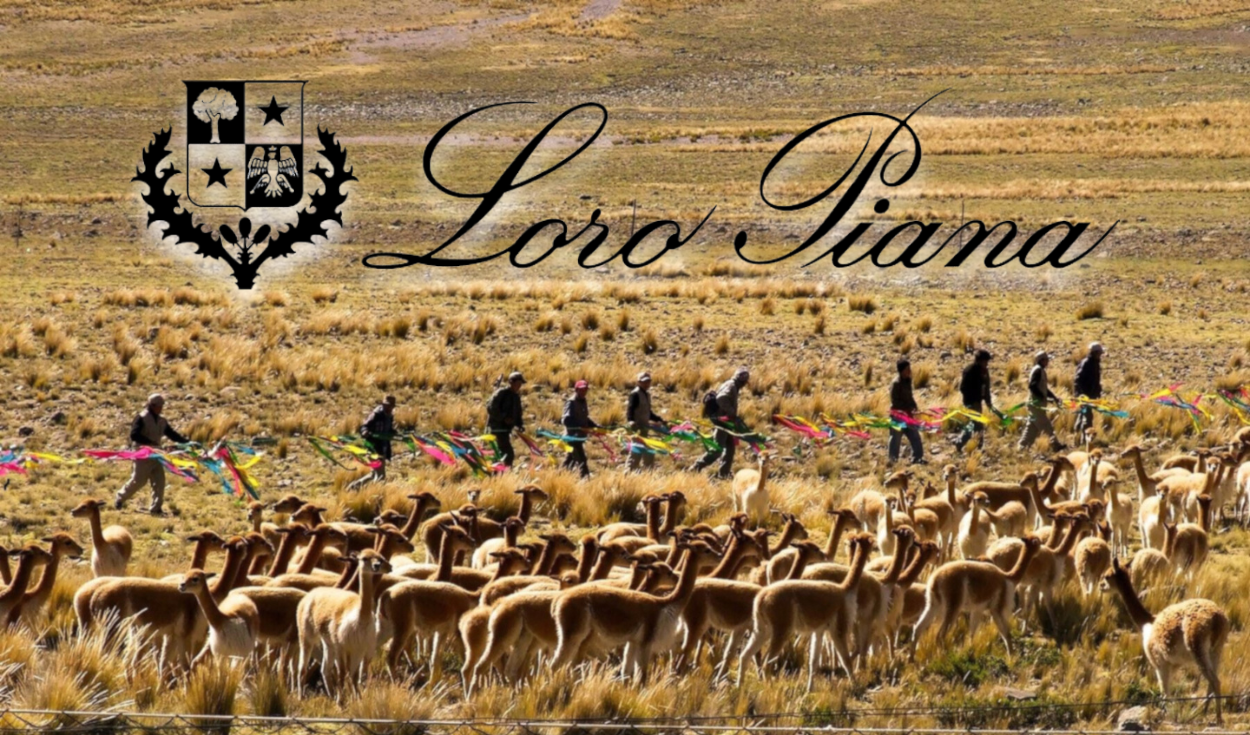
Loro Piana has aroused the indignation of several members of the Peruvian community when it was revealed in a Bloomberg report that the company, under the command of the richest man in the world, did not fairly compensate the community members of the Lucanas district, a place where The vicuña wool is used to make the fashion company’s expensive garments, worth up to $30,000.
Given this, last Friday, March 15, García wrote a letter to the president of Loro Piana, Antoine Arnault, son of Bernard Arnault, who controls LVMH, and to the executive director, Damien Bertrand, in which he requests that the company respond in writing. to Congress before the end of April.
“Despite the success of Loro Piana, the indigenous peoples of this region remain deeply impoverished. “This is little evidence that the benefits of the return of the vicuña population have reached those who should benefit the most,” García wrote in the letter.
What did Loro Piana say about the claim of low payment to the community of Lucanas?
After Bloomberg conducted an investigation, Loro Piana responded to Congressman Robert García’s request. According to the same medium, the response was provided through an email that indicated the following:
“We have increased our investments in irrigation, education and infrastructure in Peru in recent years, and we are committed to dedicating additional resources to benefit the local population in the future,” was the statement from the Italian brand.
It is the first time the company has addressed the issue since the story was published. In addition, they have stopped updating their accounts on social networks, such as Instagram, where numerous users have expressed criticism of their actions.
“Pay the farmers. You are exploiting, stealing and abusing our people and resources,” said one Instagram user.
How did Loro Piana take over the wool production of vicuñas?
Loro Piana, owned by LVMH and controlled by Bernard Arnault, acquired 2,000 hectares of Andean land in Lucanas for US$160,000 in the 1990s. The vicuna species nearly became extinct in the 20th century due to indiscriminate hunting, but an international treaty in In 1979 he established a legal market for his wool, benefiting Andean communities. In 1994, the community of Lucanas began shearing vicuñas under this regime, with Loro Piana as buyer.
During the Government of Alberto Fujimori, a law was approved in 1995 that granted indigenous communities the exclusive right to shear and market vicuña wool within their territories. However, in 2000, Fujimori issued a decree allowing companies to shear vicuñas within their properties, which challenged the communities’ exclusive right. Alfonso Martínez, a former government official, supported this decree and later joined Loro Piana as general manager in Peru.
Under Martínez’s direction, Loro Piana acquired land and established a perimeter to protect the vicuñas. In 2010, the Government approved Loro Piana’s application to shear vicuñas, making it the first company to do so without compensating indigenous communities.
Source: Larepublica
Alia is a professional author and journalist, working at 247 news agency. She writes on various topics from economy news to general interest pieces, providing readers with relevant and informative content. With years of experience, she brings a unique perspective and in-depth analysis to her work.











